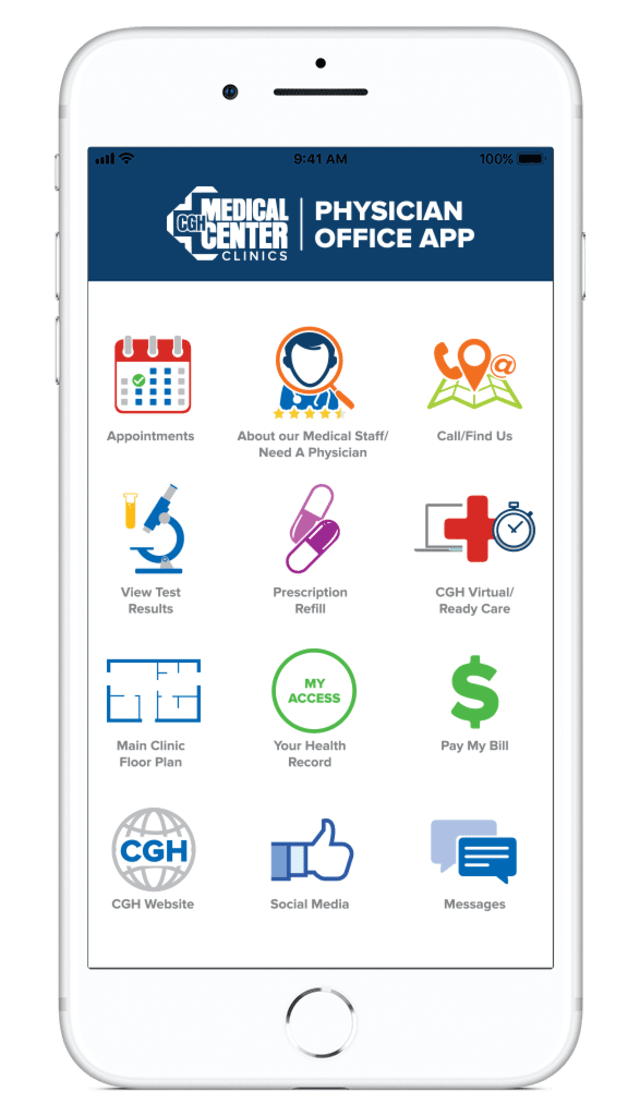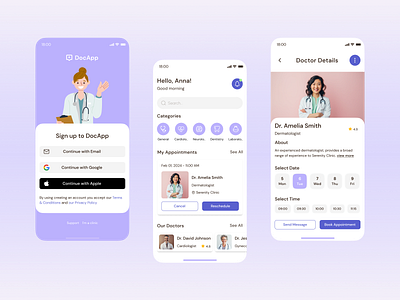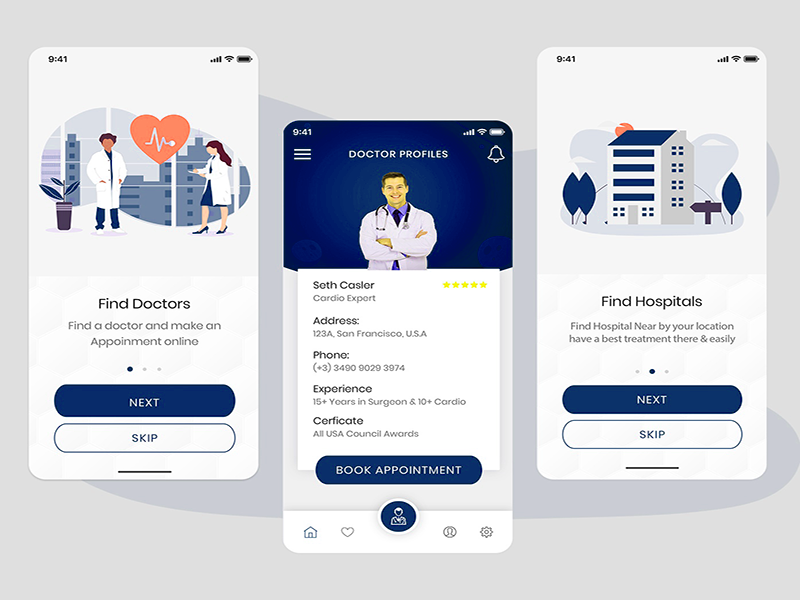The Future of Medical Care: Why Clinics Need a Mobile App Today
As the health care landscape remains to progress, facilities encounter installing pressure to adjust to client expectations for higher ease and ease of access. The combination of mobile applications can function as a vital method for boosting patient engagement and enhancing procedures. By leveraging modern technology to enhance communication and supply essential services, centers not only attend to existing needs but also position themselves for future success. The implications of this shift expand past mere functional performance; they could redefine individual relationships and care delivery in profound methods. What might this transformation appear like for both clinics and people?
Altering Patient Assumptions
As the landscape of healthcare advances, individual expectations are undergoing a considerable change. Today's people are progressively looking for benefit, access, and personalized treatment.
Additionally, patients are coming to be extra educated and equipped, typically investigating therapies and problems on the internet before assessments. This enhanced awareness is combined with a need for transparency in health care procedures, including expense estimates and therapy options. Consequently, suppliers are obliged to adjust by embracing electronic tools that improve the person experience.
The assumption for efficient and timely interaction has actually never been higher, with several patients thinking about responsiveness a vital element of top quality treatment. mobile app for clinics. In this developing landscape, medical care organizations should acknowledge these transforming expectations and take advantage of mobile applications to foster a more patient-centric technique, ensuring that they not just fulfill but surpass the requirements set by today's enlightened consumers
Enhancing Patient Interaction

Mobile applications assist in communication between people and health care companies, enabling real-time appointment scheduling, pointers for drug adherence, and straight messaging functions. These capabilities not just improve benefit but also construct a feeling of responsibility among clients. Mobile applications can provide academic content customized to private needs, aiding people better understand their conditions and therapy options.
The combination of gamification elements within healthcare applications can additionally encourage individuals to take part in healthy actions, strengthening favorable way of life adjustments. By tracking progression and rewarding accomplishments, patients are most likely to remain committed to their wellness objectives. Eventually, enhancing individual involvement with mobile applications brings about boosted health results, higher patient fulfillment, and an extra collaborative health care experience. Facilities that prioritize this aspect will likely see a considerable effect on the top quality of care provided.
Simplifying Center Procedures
Simplifying facility procedures is important click over here now for enhancing process effectiveness and maximizing patient treatment. The application of mobile applications can dramatically lower administrative worries, permitting health care carriers to focus much more on patient interactions. By automating consultation organizing, client check-ins, and invoicing processes, centers can reduce wait times and enhance general functional efficiency.
Mobile applications additionally facilitate real-time access to patient records, enabling health care professionals to make educated decisions promptly. This immediacy not just improves the quality of treatment however likewise decreases the possibility of errors associated with lost or obsoleted details. Leveraging mobile modern technology sustains a more organized technique to managing person follow-ups and treatment plans, ensuring that no essential actions are neglected.
This permits for timely replenishment and aids avoid disruptions in individual treatment due to stock scarcities. By integrating these capabilities into their everyday procedures, facilities can create a much more natural and reliable atmosphere, ultimately leading to boosted patient results and contentment.
Improving Communication Networks
Effective interaction is regularly cited as a keystone of quality health care delivery. In today's hectic clinical environment, mobile applications can considerably improve communication networks between clinics, people, and doctor. By incorporating mobile apps into their procedures, clinics can help with real-time communications, guaranteeing that patients receive prompt information regarding their visits, test outcomes, and therapy strategies.
Mobile apps likewise equip individuals to interact directly with their medical care groups with safe messaging functions. This straight line of interaction promotes a feeling of interaction and permits immediate clarification of concerns, which can lead to far better adherence to therapy procedures. Push alerts can remind patients of upcoming visits or medicine timetables, minimizing no-show rates and improving total health outcomes.

Staying Affordable in Medical Care
In a rapidly progressing medical care landscape, organizations should focus on technology and flexibility to maintain an one-upmanship. The integration of mobile his comment is here applications into health care solutions is no more optional; it is vital for centers intending to boost client interaction, improve procedures, and improve overall solution delivery.
As clients progressively depend on electronic systems for wellness monitoring, clinics that fall short to take on mobile technology risk falling behind. A well-designed mobile app can provide functions such as visit scheduling, telemedicine appointments, and access to clinical documents, offering patients with comfort and promoting commitment.

Rivals are likewise buying mobile options, so staying ahead needs continual improvement and remaining notified about technological improvements. Facilities should not only carry out mobile applications but also involve in routine updates and improvements. Ultimately, the successful assimilation of mobile innovation will certainly differentiate forward-thinking healthcare companies and set the standard for patient-centric care in an electronic world.
Verdict
In verdict, the integration of mobile applications in facilities is critical to address the evolving landscape of patient expectations. Ultimately, the strategic implementation of mobile apps represents an important step toward delivering personalized and accessible health care, consequently satisfying the requirements of today's empowered patients.
Inevitably, boosting person interaction with mobile applications leads to enhanced health and wellness results, greater individual fulfillment, and a much more collaborative medical care experience.Mobile applications likewise assist in real-time access to patient records, allowing medical care experts to make informed choices swiftly. In today's fast-paced clinical atmosphere, mobile applications can considerably enhance interaction channels between facilities, individuals, and health wikipedia reference care service providers.Mobile applications likewise equip patients to connect directly with their healthcare groups with secure messaging attributes. Eventually, the tactical application of mobile apps stands for a crucial step toward delivering customized and obtainable healthcare, thereby satisfying the demands of today's empowered patients.